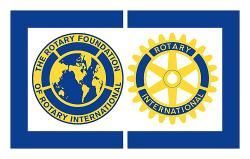3-year pilot program to test new grant structure
The Trustees will select approximately 60 geographically dispersed districts to participate. During the pilot phase, the Foundation will operate along parallel tracks, with the pilot districts following the guidelines for the new models and the remaining majority of districts seeing little, if any, change in the way they participate in Foundation programs.
"This transitional pilot stage will allow us to identify and work out any issues that we might not have anticipated," said Trustee Chair-elect Jonathan Majiyagbe, who is vice chair of the Future Vision Committee. "We can also use this period to develop strategic cooperative relationships needed to work with 530 districts." The transitional period will also give Rotarians time to adjust to the many changes underway.
Past RI President Luis V. Giay, who chairs the committee, recognized that the magnitude of change involved may be difficult for some Rotarians to accept quickly. "Our Rotary culture is slow to change and must be given time," Giay said, "but change is imperative for our Foundation's health. I believe that ultimately we will experience a broader and deeper commitment to our Foundation as Rotarians see the measurable outcomes of their work."
- Monday: Read an overview of the new Future Vision models.
- Tuesday: Learn more about the grant types.
- Wednesday: Discover how strategic cooperative relationships will enhance Rotary service.
- Thursday: Find out what the new distributable funds model will mean to your club and district.
- Watch a video message from Steve Brown, member of the Future Vision committee.
